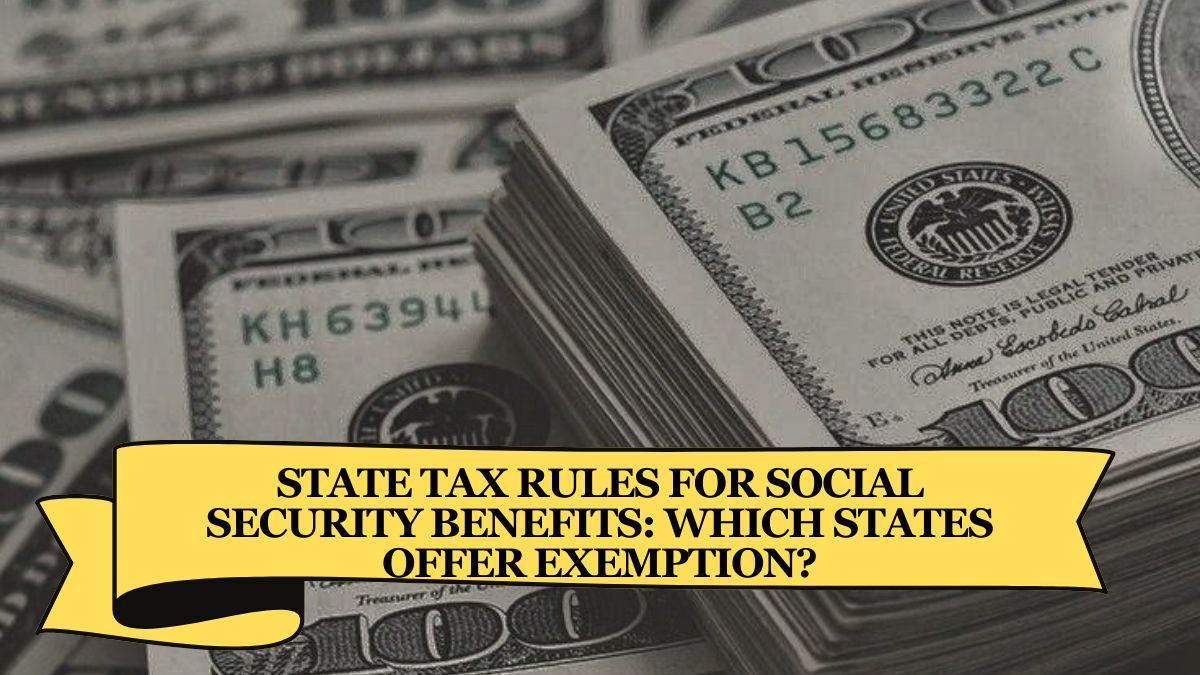Many people assume that Social Security benefits are always untaxed, but that’s not the case. While Social Security income is not always taxed at the state level, 41 states do not tax Social Security benefits. However, in certain states, Social Security income may be taxed based on different rules than the federal government. This article will guide you through which states don’t tax Social Security benefits, the states that still do, and the general rules surrounding taxes on Social Security income.
States That Do Not Tax Social Security Benefits
As of 2025, a total of 41 states do not tax Social Security income. This is great news for many retirees, as it helps preserve their retirement income. These states include:
- Alabama
- Alaska
- Arizona
- Arkansas
- California
- Delaware
- Florida
- Georgia
- Hawaii
- Idaho
- Illinois
- Indiana
- Iowa
- Kansas
- Kentucky
- Louisiana
- Maine
- Maryland
- Massachusetts
- Michigan
- Mississippi
- Missouri
- Nebraska
- Nevada
- New Hampshire
- New Jersey
- New York
- North Carolina
- North Dakota
- Ohio
- Oklahoma
- Oregon
- Pennsylvania
- South Carolina
- South Dakota
- Tennessee
- Texas
- Virginia
- Washington (state and D.C.)
- Wisconsin
- Wyoming
In these states, your Social Security income is exempt from state taxes, no matter how much you earn from other sources or whether you are still working.
Why Social Security Income is Not Taxed in These States
The reason why these states don’t tax Social Security benefits is often because they have no state income tax at all. States like Florida, Texas, and Washington fall into this category. In other cases, some states offer tax exemptions or deductions for Social Security benefits to encourage retirement savings. For instance, if you live in South Carolina and receive $20,000 a year from Social Security, you could save as much as $1,400 in taxes.
States That Do Tax Social Security Benefits
While 41 states offer tax relief, there are still some states that tax Social Security benefits to varying degrees. These states include:
- Colorado
- Connecticut
- Minnesota
- Montana
- New Mexico
- Rhode Island
- Utah
- Vermont
- West Virginia
In these states, the rules are generally less strict than the federal government’s. For example, Colorado only taxes Social Security benefits if the beneficiary is under 65 and their income surpasses certain levels. So, the amount of tax you pay on Social Security income depends on your income level and other factors.
States with Looser Tax Rules for Social Security
Some of the states on this list have more flexible tax rules for Social Security benefits. For example, Vermont and New Mexico offer certain exemptions based on your income. These states don’t automatically tax all Social Security income, so your overall tax burden might not be as high as you think.
How Taxes on Social Security Benefits Affect Retirees
While it may be frustrating to live in a state that taxes Social Security income, it’s important to remember that tax rules can vary widely from state to state. Some states that tax Social Security benefits might have low property taxes, or no sales tax, which can help offset the income tax. For example, Montana has a tax on Social Security benefits, but it is one of the few states that does not have a state sales tax. So, while you may be paying taxes on Social Security, you might benefit in other areas of your life.
Example: Saving Money by Moving to a State Without Social Security Taxes
If you receive $20,000 per year from Social Security and live in a state like South Carolina, you could save a lot of money by moving to a state with no income tax. For example, if you moved to Florida or Texas, you wouldn’t have to worry about paying state taxes on your Social Security benefits at all, allowing you to keep more of your retirement income.
What’s the Future of Social Security Taxation?
Looking ahead, more states are considering following the example of states like West Virginia, which is in the process of phasing out taxes on Social Security income. As of 2026, Social Security benefits will be completely exempt from state taxes in West Virginia, which is great news for retirees living there.
Other Ways States Can Impact Retirees’ Tax Burden
Taxes on Social Security benefits are just one part of the overall tax picture for retirees. Other taxes, such as property taxes and sales taxes, can have a big impact on how much money you keep in retirement. Even if your state taxes Social Security benefits, it might have lower property taxes, or no state sales tax, which can help balance the impact.
Example: Comparing State Taxes for Retirees
Let’s say you live in Montana, which taxes Social Security benefits for some residents. While you might pay taxes on your Social Security income, you wouldn’t have to pay any state sales tax. This could make living in Montana more tax-friendly overall compared to a state with higher sales taxes but no Social Security tax.
If you’re a retiree who’s concerned about taxes on your Social Security benefits, it might be worth considering moving to one of the 41 states that don’t tax Social Security income. In these states, you can keep more of your benefits, which can make a big difference in your retirement plans. While there are some states that still tax Social Security benefits, they typically offer other tax advantages, such as lower property taxes or no sales taxes, which can offset the tax burden. Ultimately, the key to managing your retirement taxes is understanding the full picture of state taxes and how they affect your overall financial situation.
Must Visit: California State Online

